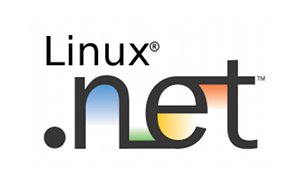The Final International Draft standard (FCD) was unanimously approved on August 12th, 2011. The standard should be published this year. The draft name of the standard is C++0x, but since it will be published this year, it should probably renamed C++11, and if there are delays in its publication it could well be renamed to C++12. You can download the 1334 pages “Working Draft, Standard for Programming Language C++” to get the full details. If you don’t feel like going thru that massive document, but still want to learn about C++0x, I recommend you check the C++0x FAQ on Bjarne Stroustrup (The creator of C++) homepage. Here are some the new features and improvements: initializer-lists – Initializer lists are not just for arrays any more uniform initialization syntax and semantics template aliases (previously know as template typedef) rvalue references defaulted and deleted functions variadic templates auto – deduction of a type from […]
Compile with ARM Thumb2 to Reduce Memory Footprint and Improve Performance
ARM claims that Thumb-2 instructions (for ARM Cortex cores and all ARMv7 processors) provides performance improvements and code size optimization: Thumb-2 technology is the instruction set underlying the ARM Cortex architecture which provides enhanced levels of performance, energy efficiency, and code density for a wide range of embedded applications. For performance optimized code Thumb-2 technology uses 31 percent less memory to reduce system cost, while providing up to 38 percent higher performance than existing high density code, which can be used to prolong battery-life or to enrich the product feature set. Thumb-2 technology is featured in the processor, and in all ARMv7 architecture-based processors. Dave Martin (Linaro) has recently posted a message entitled “ARM/Thumb-2 kernel size comparison” on Linaro mailing list:
|
1 2 3 4 5 6 7 8 9 10 11 12 13 14 15 16 |
The question of the size impact of building the kernel in Thumb-2 came up to day, so I extracted some quick numbers: $ size vmlinux-* text data bss dec hex filename 8420507 463356 826928 9710791 942cc7 vmlinux-arm 6715539 463260 826928 8005727 7a285f vmlinux-thumb2 This is for a recent mainline kernel built with the linaro omap config. In this case we save about 20% for code and read-only data (i.e., text) and 17.5% overall -- which accounts for a little under 2MB saved in this example. This doesn't take loadable modules into account; we can probably expect to see a similar size ratio there. |
The results provided by Linaro at not as high as those claimed by ARM, but a 20% code size reduction is still impressive. If you want to use Thumb2 to compile […]
C Code to get MAC Address and IP Address
Function in C to return the MAC Address:
|
1 2 3 4 5 6 7 8 9 10 11 12 13 14 15 16 17 18 19 20 21 22 23 24 25 26 |
/* Returns the MAC Address Params: int iNetType - 0: ethernet, 1: Wifi char chMAC[6] - MAC Address in binary format Returns: 0: success -1: Failure */ int getMACAddress(int iNetType, char chMAC[6]) { struct ifreq ifr; int sock; char *ifname=NULL; if (!iNetType) { ifname="eth0"; /* Ethernet */ } else { ifname="wlan0"; /* Wifi */ } sock=socket(AF_INET,SOCK_DGRAM,0); strcpy( ifr.ifr_name, ifname ); ifr.ifr_addr.sa_family = AF_INET; if (ioctl( sock, SIOCGIFHWADDR, &ifr ) < 0) { return -1; } memcpy(chMAC, ifr.ifr_hwaddr.sa_data, 6) close(sock); return 0; } |
Function in C to return the IP Address:
|
1 2 3 4 5 6 7 8 9 10 11 12 13 14 15 16 17 18 19 20 21 22 23 |
/* Returns the interface IP Address Params: int iNetType - 0: ethernet, 1: Wifi char *chIP - IP Address string Return: 0: success / -1: Failure */ int getIpAddress(int iNetType, char chIP[16]) { struct ifreq ifr; int sock = 0; sock = socket(AF_INET, SOCK_DGRAM, 0); if(iNetType == 0) { strcpy(ifr.ifr_name, "eth0"); } else { strcpy(ifr.ifr_name, "wlan0"); } if (ioctl(sock, SIOCGIFADDR, &ifr) < 0) { strcpy(chIP, "0.0.0.0"); return -1; } sprintf(chIP, "%s", inet_ntoa(((struct sockaddr_in *) &(ifr.ifr_addr))->sin_addr)); close(sock); return 0; } |
Jean-Luc Aufranc (CNXSoft)Jean-Luc started CNX Software in 2010 as a part-time endeavor, before quitting his job as a software engineering manager, and starting to write daily news, and reviews full time later in 2011. www.cnx-software.com
Installing Linaro ARM Cross Toolchain on Ubuntu
You can easily install Linaro arm cross-compiler on Ubuntu 10.04 (Lucid), 10.10 (Maverick) and 11.04 (Natty) as follows: sudo apt-get install gcc-arm-linux-gnueabi This will install Linaro cross-toolchain version 4.4 on Ubuntu 10.04 and 10.10, and version 4.5 on Ubuntu 11.04. You can check the installation worked by checking the cross-compiler version jaufranc@CNX-TOWER:~$ arm-linux-gnueabi-gcc -v Using built-in specs. Target: arm-linux-gnueabi Configured with: ../src/configure -v –with-pkgversion=’Ubuntu/Linaro 4.4.4-14ubuntu4′ –with-bugurl=file:///usr/share/doc/gcc-4.4/README.Bugs –enable-languages=c,c++,fortran,objc,obj-c++ –prefix=/usr –program-suffix=-4.4 –enable-shared –enable-multiarch –enable-linker-build-id –with-system-zlib –libexecdir=/usr/lib –without-included-gettext –enable-threads=posix –with-gxx-include-dir=/usr/arm-linux-gnueabi/include/c++/4.4.5 –libdir=/usr/lib –enable-nls –enable-clocale=gnu –enable-libstdcxx-debug –enable-objc-gc –disable-sjlj-exceptions –with-arch=armv7-a –with-float=softfp –with-fpu=vfpv3-d16 –with-mode=thumb –disable-werror –enable-checking=release –program-prefix=arm-linux-gnueabi- –includedir=/usr/arm-linux-gnueabi/include –build=i686-linux-gnu –host=i686-linux-gnu –target=arm-linux-gnueabi –with-headers=/usr/arm-linux-gnueabi/include –with-libs=/usr/arm-linux-gnueabi/lib Thread model: posix gcc version 4.4.5 (Ubuntu/Linaro 4.4.4-14ubuntu4) You can also install the latest version 4.5 (recommended) on Lucid and Maverick: sudo add-apt-repository ppa:linaro-maintainers/toolchain sudo apt-get update sudo apt-get install gcc-4.5-arm-linux-gnueabi If you are using an ARM platform running Ubuntu 10.10 or higher, you could also use the native GCC compiler. sudo apt-get install […]
Cross compiling Berkeley DB for ARM and MIPS
Following my blog entry about Databases for Linux Embedded Systems, here are the instructions to cross-compile Oracle Berkeley DB. First download the source code of the latest version of Berkeley DB (version 11gR2 – 11.2.5.1.25). You’ll need to register on Oracle website first on the download page http://www.oracle.com/technetwork/database/berkeleydb/downloads/index.html to download http://download.oracle.com/otn/berkeley-db/db-5.1.25.tar.gz (with AES encryption) or http://download.oracle.com/otn/berkeley-db/db-5.1.25.NC.tar.gz (if you don’t need encryption). Extract the source code: tar xzvf ../Downloads/db-5.1.25.tar.gz Configure and build the source code. I’ll use mipsel-linux-gcc, but any other cross-compiler could be used. cd db-5.1.25/build_unix ../dist/configure –host=mipsel-linux CC=mipsel-linux-gcc RANLIB=mipsel-linux-ranlib STRIP=mipsel-linux-strip AR=mipsel-linux-ar –prefix=/home/jaufranc/edev/lib/db-11g make make install The full berkeley DB package is 79MB: jaufranc@CNX-TOWER:~/edev/lib/db-11g$ du –max-depth=1 -h 6.6M ./lib 308K ./bin 72M ./docs 176K ./include 79M . However, you won’t need the include and docs directory in your embedded target. So you do not need to copy those. You may or may need the utilities in the bin file. The […]
Cross compiling SQLite for ARM and MIPS
Following my blog entry about Databases for Linux Embedded Systems, here are the instructions to cross-compile SQlite. First download the latest version of SQLite amalgamation with autoconf script (version 3.75): wget http://www.sqlite.org/sqlite-autoconf-3070500.tar.gz Extract the source code: tar xzvf sqlite-autoconf-3070500.tar.gz Configure and build the source code. I’ll use mipsel-linux-gcc, but any other cross-compiler could be used. cd sqlite-autoconf-3070500 ./configure –host=mipsel-linux –target=mipsel-linux –prefix=/home/jaufranc/edev/sqlite-mips make make install At this point the library is correctly configured and installed, so you’d just need to copy the relevant files to your target board (skip include and share directories and libsqlite3.a) . Let’s check the size of the required files: ls -l ../sqlite-mips/bin/ -rwxr-xr-x 1 jaufranc jaufranc 125513 2011-03-14 14:21 sqlite ls -l ../sqlite-mips/lib/libsqlite3.so.0.8.6 -rwxr-xr-x 1 jaufranc jaufranc 2087584 2011-03-14 14:21 ../sqlite-mips/lib/libsqlite3.so.0.8.6 sqlite binary is 122.57KB and the dynamic library 2038.65KB. Let’s see if we can optimize the binary size with compilation flags and by disabling some […]
Android C/C++ development with Android Native SDK
HyperDevBox is a Japanese based software development company, developing games for Android. They are presenting their new Android game called “Spectral Souls”, the first tactical RPG game for Android. The interesting part is that this Android gamewas not developped with Java, but only using C/C++ programming with Android Native SDK (NDK) (Currently revision 5). Using the NDK means you’ll have to adapt your software to several hardware platform contrary to java development. They now only support Qualcomm and PowerVR GPU for now, and they are working on supporting NVidia Tegra platform and other upcoming GPU. The advantage of native code is a potential performance improvement and code re-use if you have already applications developed in C/C++, the inconvenience is that more work is need to support different hardware. Currently the NDK is only available for ARM platforms (ARMv5TE andARMv7-A), future releases will support x86 instructions. The video below is an […]
Running .NET applications on Linux Embedded Systems
You may have some applications developed using Microsoft .NET application framework that are running on Windows XP, Windows Vista and Windows 7. .NET for Linux If after spending much effort and time, you have a request to port your application to Linux, you don’t need to rewrite everything thanks to Mono, an open source implementation of .NET framework that can be run in Windows, Linux and MacOS. The development framework is composed of three parts: Mono – An open source, cross-platform, implementation of C# and the CLR that is binary compatible with Microsoft.NET MonoDevelop – An open Source C# and .NET development environment for Linux, Windows, and Mac OS X Mono Tools for Visual Studio – Development Tools to develop and migrate .NET applications to Mono on Linux without leaving Visual Studio. This application can be tried for 30 days and / or purchased. This tools is compatible with Visual […]





